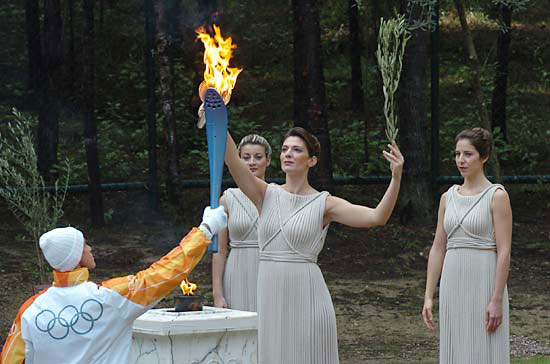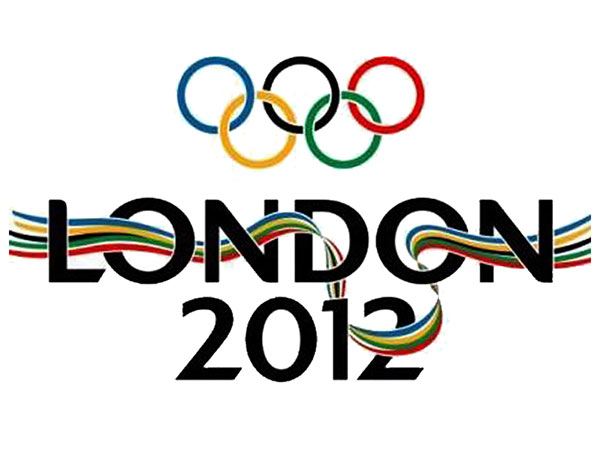
Pre-Olympic Silence
/ Главная / Russkiy Mir Foundation / Publications / Pre-Olympic SilencePre-Olympic Silence

The XXII Olympic Games opened in Moscow on July 19, 1980. Then global politics interfered with sports. After Soviet troops invaded Afghanistan a number of Western nations decided to boycott the Moscow Olympiad and not to send their athletes to Russia.
In the lack of main competitors from the US and leading European nations the Soviet national team looked much stronger than others and won 195 medals, including 80 gold medals.
That Olympiad left a multitude of diverse impressions, sensations and… aftertastes. For the first time millions of Soviet people tasted Cola drinks and Finnish cervelat prepackaged into neat plastic bags. Moscow was cleaned up so thoroughly that at any time of the day there were vacant seats in the metro. Only sober people walked the streets, half of them being policemen, military and KGB personnel. Not just the marginal but also any potentially disorderly elements were purged from the capital city, just in case.
Surely we still remember the records of swimmer Vladimir Salnikov, a preposterous loss of our national football team to East Germany, span-new sporting facilities and a “tender Teddy Bear” flying up into the evening Luzhniki skies.
In short, there was a lot to buzz about before and during the Games. Mass media were number one prattlers: while Soviet media outlined the beautiful Olympic future, Western media discussed Afghanistan, Soviet hypocrisy and the principles of Baron de Coubertin.

Even in a rather limited space of the then Soviet mass media – just a couple of TV and radio channels and a couple dozen of national newspapers – long before the Olympiad reporters had expressed their confidence that there was no way to hide or shut off from the Games.
This tradition was to some extent maintained in the post-Soviet period as well. National media got out of their ways to highlight the everyday life of Soviet Olympic team weeks before the grand opening.
Until recently we had been rather bold as regards reports, surveys, forecasts, interviews, photographs and even “innocent” provocations. To be more exact, until the last winter Olympics 2010 in Vancouver, Canada, where our national team ranked only 11th; by the way, our team looked quite decent at the last Summer Olympic Games 2008 in Beijing, where it ranked third.
The XXX Olympic Games in London are about to start, but there is a perfect calm and lull in our national media instead of the usual hype and stir. I’d even characterize this attitude as indifference.
There is silence about the already traditional “Russian House” in the Olympic capital. Prior to Vancouver many had come to the Games in order to spend their entire time in that house where chairs were broken and alcoholic beverages were flowing like a river. Sports Minister Mutko is scant of estimations: from 20 to 30 gold medals is a rather murky prospect and no names are mentioned at that. There are slightly more than half of athletes in the Russian national delegation counting 800.
Why am I saying that? On the one hand, anxiety is hanging in the air because even optimistically minded Mutko looks somewhat gloomy. Once media keep silent it means they were explained that no glitter was pertinent.
On the other hand, there is a sign in Russia: every time we yell about the coming triumph and hype the strength of our athletes, demonstrating the arrogant faith in success, the end result is not particularly good. But when we keep silent at the start or even apprehend the opposition our athletes often win many Olympic medals.
And now just a few words about the generally restrained and pragmatic British, though it is a slight digression from our main topic. After the victory in WWI London hosted a military parade that lasted 21 hours without a break; thus a non-Olympic record was set. Incidentally, this happened on July 19 of 1919!
True, hard workers celebrate holidays better than anybody else!
Mikhail Bykov
| Tweet |
New publications

 Mikhail Kalatozov, a director who transformed the world of cinematography in many ways, was born 120 years ago. He was a Soviet film official and a propagandist. Above all, he was capable of producing movies that struck viewers with their power and poetic language.
Mikhail Kalatozov, a director who transformed the world of cinematography in many ways, was born 120 years ago. He was a Soviet film official and a propagandist. Above all, he was capable of producing movies that struck viewers with their power and poetic language.  Ukrainian authorities have launched a persecution campaign against the canonical Ukrainian Orthodox Church (UOC), the biggest one in the country's modern history. Over the past year, state sanctions were imposed on clergy representatives, searches were conducted in churches, clergymen were arrested, criminal cases were initiated, the activity of the UOC was banned in various regions of the country, and monasteries and churches were seized.
Ukrainian authorities have launched a persecution campaign against the canonical Ukrainian Orthodox Church (UOC), the biggest one in the country's modern history. Over the past year, state sanctions were imposed on clergy representatives, searches were conducted in churches, clergymen were arrested, criminal cases were initiated, the activity of the UOC was banned in various regions of the country, and monasteries and churches were seized.  When Nektary Kotlyaroff, a fourth-generation Russian Australian and founder of the Russian Orthodox Choir in Sydney, first visited Russia, the first person he spoke to was a cab driver at the airport. Having heard that Nektariy's ancestors left Russia more than 100 years ago, the driver was astonished, "How come you haven't forgotten the Russian language?" Nektary Kotlyaroff repeated his answer in an interview with the Russkiy Mir. His affinity to the Orthodox Church (many of his ancestors and relatives were priests) and the traditions of a large Russian family brought from Russia helped him to preserve the Russian language.
When Nektary Kotlyaroff, a fourth-generation Russian Australian and founder of the Russian Orthodox Choir in Sydney, first visited Russia, the first person he spoke to was a cab driver at the airport. Having heard that Nektariy's ancestors left Russia more than 100 years ago, the driver was astonished, "How come you haven't forgotten the Russian language?" Nektary Kotlyaroff repeated his answer in an interview with the Russkiy Mir. His affinity to the Orthodox Church (many of his ancestors and relatives were priests) and the traditions of a large Russian family brought from Russia helped him to preserve the Russian language.

 The leaders of the Friends of the Great Russia cultural association (Amici Della Grande Russia) in Italy believe that the Western policy of abolishing Russian culture in Europe has finally failed. Furthermore, it was doomed to failure from the beginning.
The leaders of the Friends of the Great Russia cultural association (Amici Della Grande Russia) in Italy believe that the Western policy of abolishing Russian culture in Europe has finally failed. Furthermore, it was doomed to failure from the beginning.  Name of Vladimir Nemirovich-Danchenko is inscribed in the history of Russian theater along with Konstantin Stanislavski, the other founding father of the Moscow Art Theater. Nevertheless, Mr. Nemirovich-Danchenko was a renowned writer, playwright, and theater teacher even before their famous meeting in the Slavic Bazaar restaurant. Furthermore, it was Mr. Nemirovich-Danchenko who came up with the idea of establishing a new "people's" theater believing that the theater could become a "department of public education."
Name of Vladimir Nemirovich-Danchenko is inscribed in the history of Russian theater along with Konstantin Stanislavski, the other founding father of the Moscow Art Theater. Nevertheless, Mr. Nemirovich-Danchenko was a renowned writer, playwright, and theater teacher even before their famous meeting in the Slavic Bazaar restaurant. Furthermore, it was Mr. Nemirovich-Danchenko who came up with the idea of establishing a new "people's" theater believing that the theater could become a "department of public education."  "Russia is a thing of which the intellect cannot conceive..." by Fyodor Tyutchev are famous among Russians at least. December marks the 220th anniversary of the poet's birth. Yet, he never considered poetry to be his life's mission and was preoccupied with matters of a global scale. Mr.Tyutchev fought his war focusing on relations between Russia and the West, the origins of mutual misunderstanding, and the origins of Russophobia. When you read his works today, it feels as though he saw things coming in a crystal ball...
"Russia is a thing of which the intellect cannot conceive..." by Fyodor Tyutchev are famous among Russians at least. December marks the 220th anniversary of the poet's birth. Yet, he never considered poetry to be his life's mission and was preoccupied with matters of a global scale. Mr.Tyutchev fought his war focusing on relations between Russia and the West, the origins of mutual misunderstanding, and the origins of Russophobia. When you read his works today, it feels as though he saw things coming in a crystal ball...